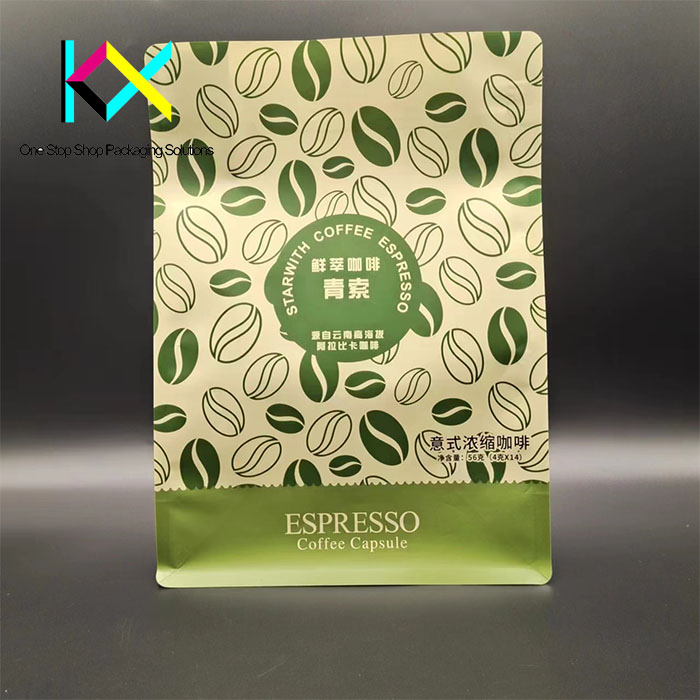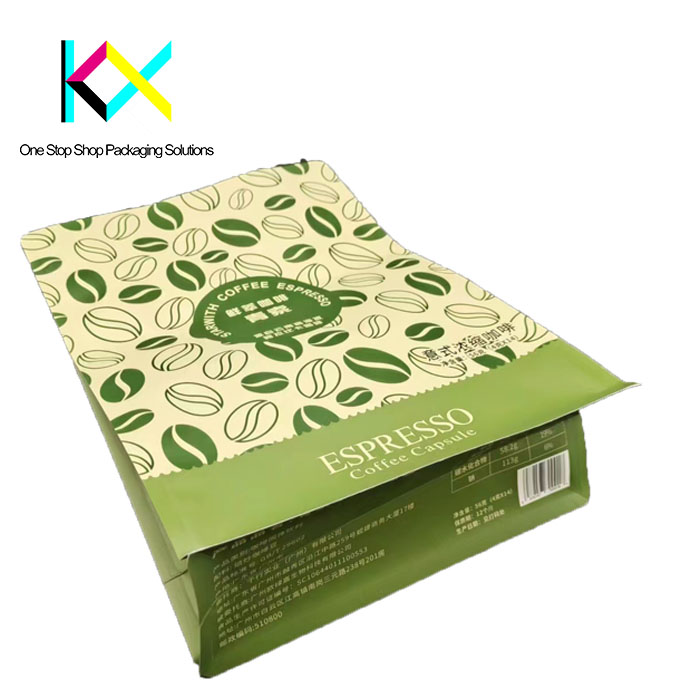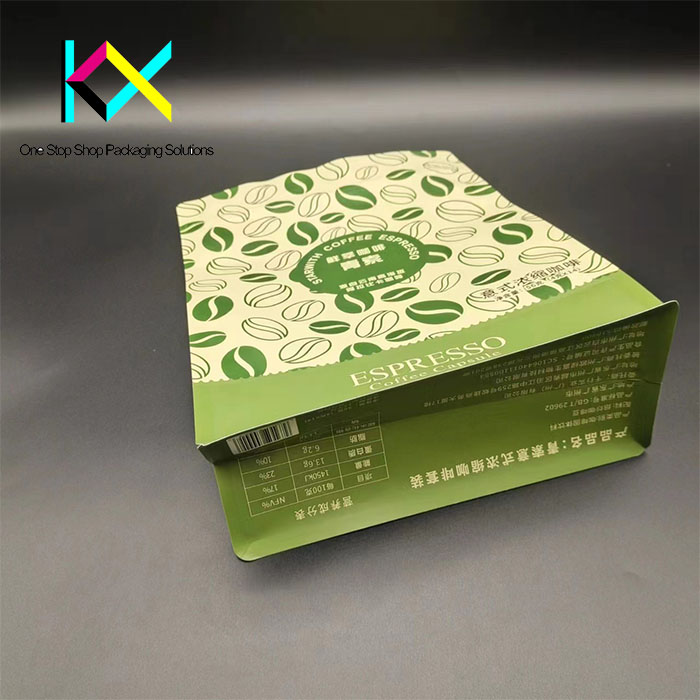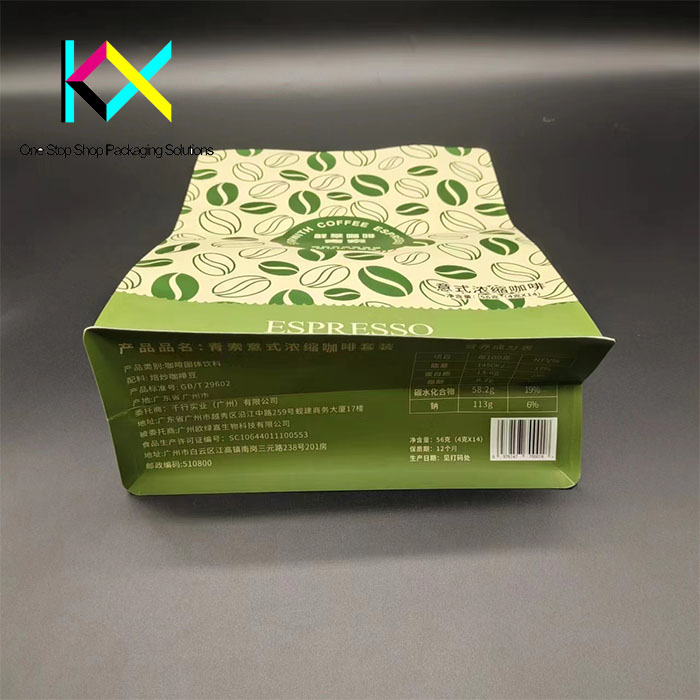How Compostable Coffee Bags Are Transforming Packaging
The global coffee industry is experiencing a remarkable sustainability transformation, driven significantly by the emergence of compostable coffee bags. These innovative packaging solutions represent a fundamental shift from traditional multi-material laminates that have dominated the market for decades. Modern compostable coffee bags are engineered to meet the rigorous demands of coffee preservation while ensuring complete biodegradability in industrial composting facilities. The development of these advanced containers addresses growing consumer demand for environmentally responsible packaging and regulatory pressures to reduce plastic waste. As specialty coffee culture continues to flourish worldwide, the adoption of compostable coffee bags signals a new era of environmental consciousness in the industry, balancing the critical need for product freshness with planetary responsibility.

The Stand-Up Revolution: Advancements in Compostable Stand Up Pouches
Parallel to developments in flat bags, the market has witnessed significant progress in compostable stand up pouches that combine functionality with sustainability. These self-supporting containers have evolved from basic designs to sophisticated solutions featuring integrated degassing valves, resealable zippers, and high-quality printing surfaces—all while maintaining their compostable credentials. The structural integrity of compostable stand up pouches presents unique engineering challenges, particularly in maintaining rigidity and barrier properties without conventional plastics. Recent innovations have successfully addressed these challenges through advanced material combinations and manufacturing techniques, creating pouches that match the performance of traditional options while offering superior environmental benefits at end-of-life.

Material Science Breakthroughs: The Foundation of Compostable Packaging
The effectiveness of both packaging formats relies heavily on recent advancements in biopolymer technology. Manufacturers have developed sophisticated material structures that combine cellulose-based films, bio-based coatings, and compostable adhesives to create high-performance barriers against oxygen, moisture, and light. These material systems for compostable coffee bags typically incorporate plant-based polymers such as PLA (polylactic acid) derived from corn or sugarcane, combined with compostable barrier coatings that protect coffee’s delicate aroma compounds. Similarly, compostable stand up pouches utilize reinforced bio-polymer constructions that provide the necessary stiffness for standing while maintaining flexibility and durability throughout the supply chain.

Certification and Compliance: Navigating the Verification Landscape
The credibility of compostable packaging depends entirely on third-party verification and compliance with international standards. Reputable manufacturers ensure their compostable coffee bags meet stringent certifications such as ASTM D6400 in the United States and EN 13432 in European markets. These certifications verify that materials completely break down in industrial composting facilities within specified timeframes without leaving toxic residues. For compostable stand up pouches, additional testing validates that all components—including inks, adhesives, and any special features like valves—meet compostability requirements. This comprehensive approach to certification provides brands and consumers with confidence that the packaging will truly return to nature as intended.

Consumer Education and Proper Disposal Practices
The environmental benefits of compostable packaging can only be realized through proper consumer understanding and disposal. Brands using compostable coffee bags increasingly incorporate clear labeling and educational materials explaining appropriate disposal methods. This communication is crucial since these materials require industrial composting facilities rather than home composting systems or conventional recycling streams. Similarly, manufacturers of compostable stand up pouches provide detailed guidance to brands about communicating disposal instructions to end consumers. This educational component has become an integral part of product development, ensuring that the packaging’s environmental potential is fully realized through correct end-of-life processing.
Supply Chain and Manufacturing Considerations
Producing truly compostable packaging requires specialized manufacturing processes and supply chain management. The creation of compostable coffee bags involves carefully controlled extrusion and conversion processes that maintain material integrity while ensuring compostability. Manufacturers must source certified raw materials and implement rigorous quality control to prevent contamination with conventional plastics. For compostable stand up pouches, additional manufacturing complexity comes from incorporating features like bottom gussets and resealable closures while maintaining compostability. Both product categories require close collaboration throughout the supply chain, from biopolymer producers to converters and brand owners, to ensure consistent quality and performance.
Market Adoption and Brand Implementation
Progressive coffee brands are increasingly adopting compostable packaging as part of their sustainability initiatives. The transition to compostable coffee bags often begins with small-batch specialty roasters and gradually expands to larger commercial operations as supply chains mature and costs become more competitive. Similarly, compostable stand up pouches are finding applications beyond coffee, including tea, snacks, and other dry goods where brand owners seek to differentiate themselves through environmental leadership. The market adoption curve reflects both growing consumer demand for sustainable options and increasing regulatory pressure to reduce packaging waste, creating a favorable environment for continued growth in compostable packaging solutions.
Future Developments and Innovation Trajectory
The compostable packaging sector continues to evolve rapidly, with several promising developments on the horizon. Research focuses on improving the barrier properties of compostable coffee bags to extend product shelf life without compromising biodegradability. Scientists are exploring novel material combinations including marine-degradable polymers and bio-based coatings derived from food waste streams. For compostable stand up pouches, innovation targets enhanced structural performance and the development of home-compostable options that break down in backyard composting systems. The ongoing convergence of material science, manufacturing technology, and consumer education promises to deliver increasingly sophisticated compostable packaging solutions that meet both functional requirements and environmental objectives.
Conclusion: The Growing Role of Compostable Packaging in a Circular Economy
The development and adoption of compostable coffee bags and compostable stand up pouches represent significant steps toward a more circular economy for packaging materials. These innovations demonstrate that it’s possible to create functional, attractive packaging that aligns with environmental values and regulatory requirements. As material science advances and composting infrastructure expands, compostable packaging will likely play an increasingly important role in reducing plastic pollution and closing the loop on packaging lifecycles. Through continued innovation, certification, and consumer education, compostable packaging solutions offer a promising path toward reconciling the practical needs of product protection with the urgent imperative of environmental stewardship.
You can visit our website to know more about our flexible packaging pouch:
